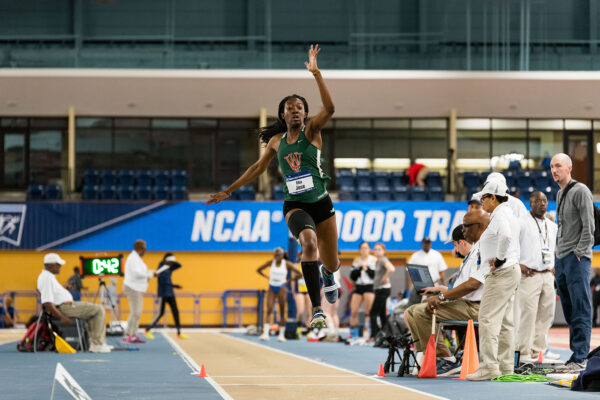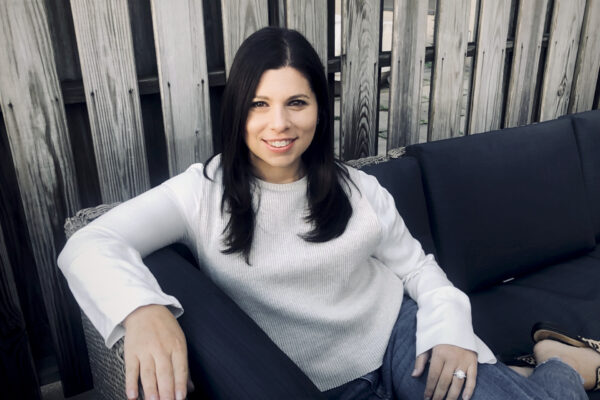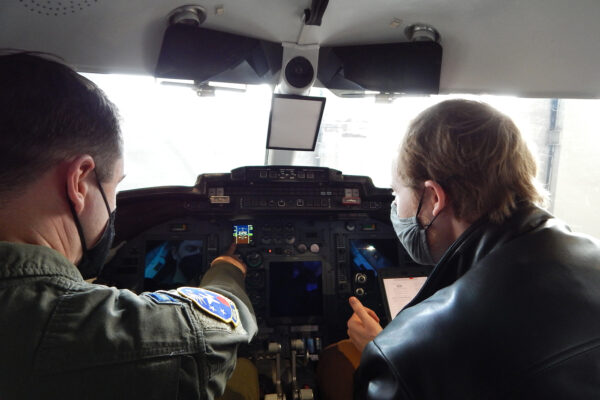Climate change disrupts nearly every facet of our society. Its fallout affects our health, homes and livelihoods, and no place on Earth is spared. From scorching summers and devastating droughts, to raging wildfires, powerful hurricanes, melting ice caps and rising sea levels, the environmental effects of greenhouse gas emissions are detrimental and disastrous to our planet.
The time for direct action to abate — and hopefully halt — the effects of climate change is now.
“July 2021 was the hottest July on record in the United States,” says David Fike, director of the International Center for Energy, Environment and Sustainability, and professor of earth and planetary sciences in Arts & Sciences at Washington University in St. Louis.
“If we don’t solve climate threats soon, they’re going to exponentially get worse. We have reached a critical point. Addressing these issues will require new ways of thinking, describing and talking about the problem.”
— David Fike
While WashU has long been committed to climate research, sustainable practices and environmental study, the university is also embracing its evolving role as it prepares the next generation of climate action specialists. The career field of climate action is as rapidly shifting and multifaceted as the problem of climate change itself, demanding new skillsets and strengths. With hands-on, multidisciplinary learning opportunities and even a new major on offer, WashU students are poised to tackle one of our planet’s greatest threats.
“It’s urgent to get these students out there, landing with their feet on the ground and starting to work toward solutions,” Fike says.
A shifting perspective
Washington University’s climate science course offerings date back several decades and have always included a collaborative focus. For more than 20 years, the Interdisciplinary Environmental Clinic (IEC), housed at the School of Law, has accepted students from across disciplines into a pro bono law practice handling cases involving water, air, waste, climate change and environmental justice problems in the region.
And starting in the 1990s, Washington University offered its students a variety of classes through its environmental studies program, which served as an multidisciplinary link to provide programming support to students interested in climate change, and action.
As it became clearer that the problem of climate change was vast, shifting and far-reaching, WashU faculty realized the education offered to future practitioners in the field needed to be even more flexible.
“When I graduated, there was a limited number of things that most people who studied environmental issues could do post-graduation,” says Phil Valko, AB ’03, WashU’s vice chancellor for sustainability. “In the last ten years, the number of career tracks in this space has just blown up. There are many more jobs and specializations. That’s created an opportunity for us in higher ed to bring the best theory and experiences to help guide our students as they head off into these new areas of practice.”
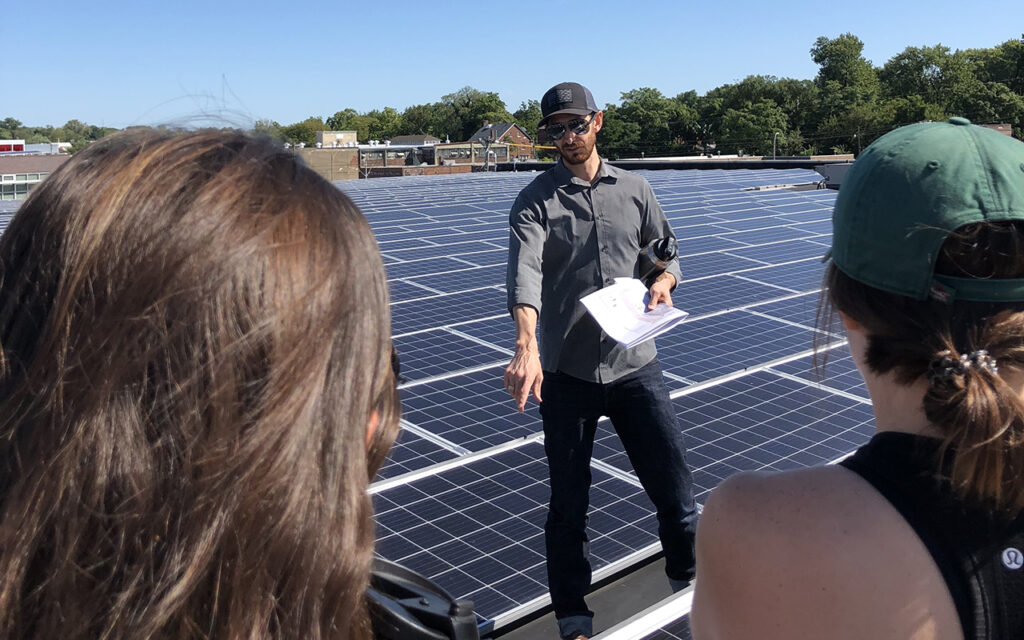
The experiential difference
Several programs on campus — including the aforementioned IEC — offer interested undergraduates substantial hands-on experience in the field of climate action, and many of these programs have been shaped by those students, who’ve worked in tandem with faculty to develop accompanying curriculum.
Take for instance student participation in COP — or the United Nations Framework Convention on Climate Change’s annual Conference of Parties — what gave rise to the 2015 Paris Agreement. Each year, experts from across the globe convene to address climate change. The meetings are crowded, with tens of thousands taking part, and procedurally can be quite complicated. That didn’t stop a group called Washington University Students for International Collaboration on the Environment from attending, albeit independently at first. They got themselves to COP sessions—no small feat–but realized extra support from faculty would be beneficial.
“We reached out to Beth Martin and said, ‘Hey, could you help us with organizing a bit?’ We were trying to fly 10 kids across the world each year, and we had no institutional support for that,” remembers Rachel Westrate, AB ’16 (environmental policy).
At the time, Martin, BSCE ’94 (civil engineering), MSEE ’96 (environmental engineering), was a senior lecturer in environmental studies working with the IEC, and she relished the chance to assist, seeing a value in the engaged, interdisciplinary experience for the students. But more than that says Martin, “was the opportunity for the students to facilitate connections between what was happening internationally in climate policy with the critical need for local climate action.”
Martin, now a teaching professor in environmental studies and director of WashU’s Climate Change Program (CCP), met with the students on a regular basis to prepare for COP19, held in Warsaw, Poland, in fall 2013. Martin attended the conference with the students, including Westrate, who was a sophomore. The experience was rich, and career-influencing, for both of them.
Westrate, who continued to work with Martin, took on a new role as a climate associate in the Climate Change Program. From there, she worked with Martin as a teaching assistant, strengthening the independent study program for students interested in attending COP, which eventually became the environmental studies course in COP preparation that Martin still teaches today. Students enrolled in the class gain foundational knowledge in the international climate arena, observe specific topics at the climate COP, and return to share their knowledge with the WashU and St. Louis community through talks, presentations and seminars.
“We’re trying to provide students with both the breadth and depth of knowledge that they’ll need to be effective in whatever career direction they choose.”
— Beth Martin
“In this case, Rachel was really able to get her feet wet in terms of the area she was most interested in, which is international climate law,” Martin adds.
From WashU, Westrate went to work at the World Resources Institute as a research assistant, and she eventually ended up at Harvard, where she completed law school this year. She says the opportunities she had at WashU truly helped shape her career path, and she believes the university can and will play a similar role for students today who might be like her.
“Students have a certain amount of power at universities to sort of demand these things, or they can express their interest or say, ‘This is what we want to do,’” Westrate says. “However, it takes really engaged faculty members and university administrators to work with them in order to do that. At WashU, the support was there. If you’re willing to do the work, people are there to support you in doing it.”
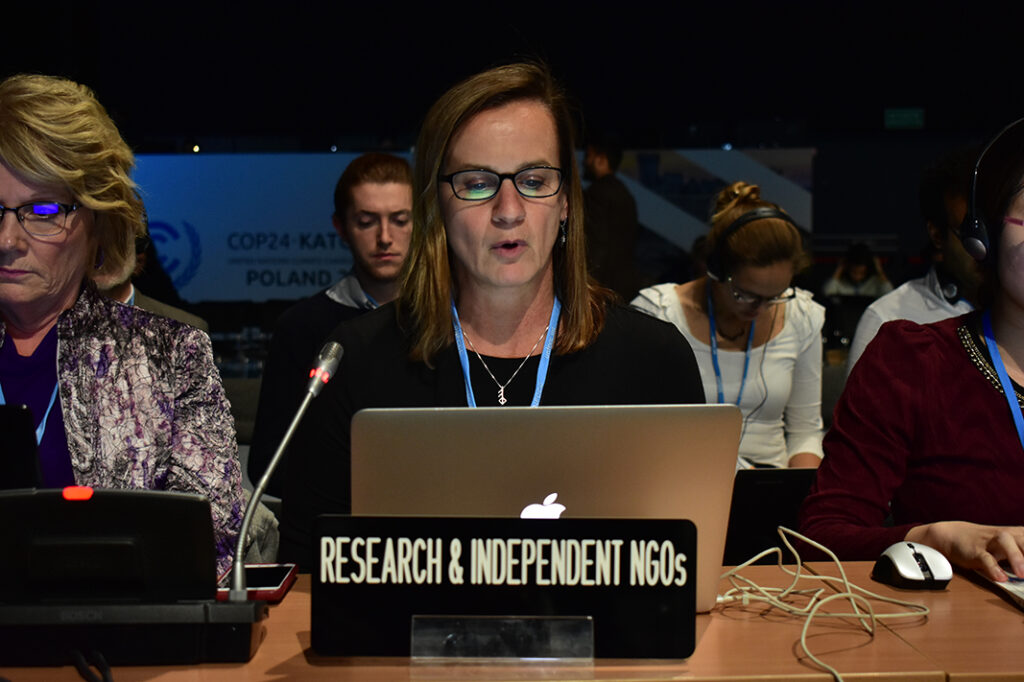
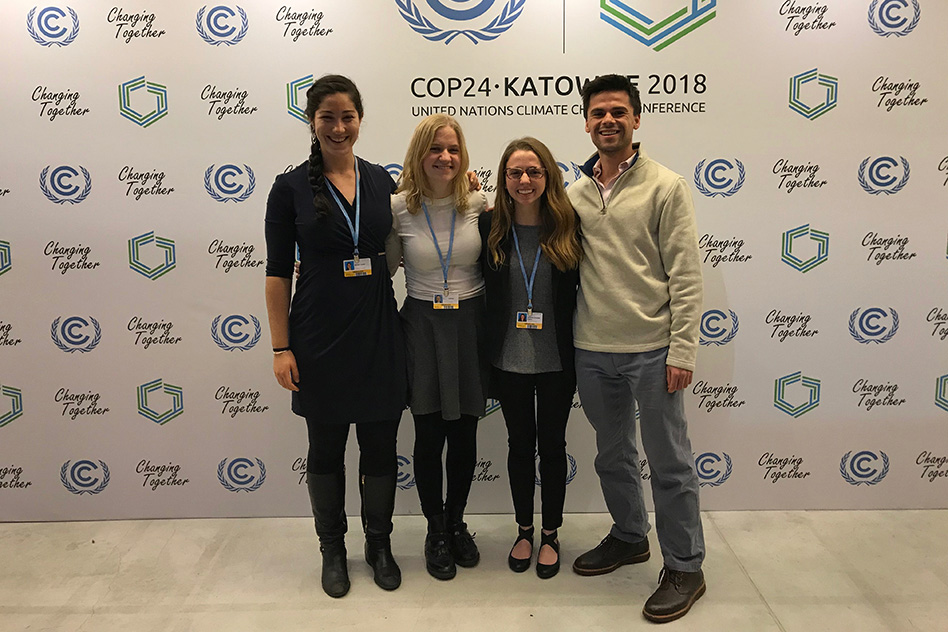
Creating climate communicators
Last year, the university debuted a new major designed to offer undergraduates a holistic look at some of the issues climate researchers, policy makers and activists are currently tackling. In developing the environmental analysis major, administrators and faculty took care to incorporate input and insights from several departments, including biology, political science, and earth and planetary sciences. Student desires and current workplace needs and trends were also taken into consideration when planning the new program.
“What we were trying to come up with was something that was much broader, that gave students a different perspective,” Fike says. “They get the breadth and an understanding of how different disciplines fit together. We emphasize both experiential learning classes, but also communications and analysis.”
Through its courses and capstone requirement, the new major has a distinct “choose your own adventure” feel to introduce students to the many different areas including policy, business, social inequality and public health that are building blocks of effective environmental and climate education and action. This allows them to focus in on what they might want to do, and forgo other areas of study that might be of lesser interest.
The new major is also designed to focus on collaboration and especially communication, an intersection that’s resonated with students pursuing the degree. Despite launching during the pandemic, there are already 33 students enrolled in the major. One is Jenise Sheppard, who’s set to graduate with a double major in environmental analysis and drama in December 2021. Sheppard, who worked at WashU’s Tyson Research Center, with its RESET program, as well as with the Sierra Club during her time at the university, says she was drawn to the multidisciplinary courses offered within the degree and the emphasis on translating the research.
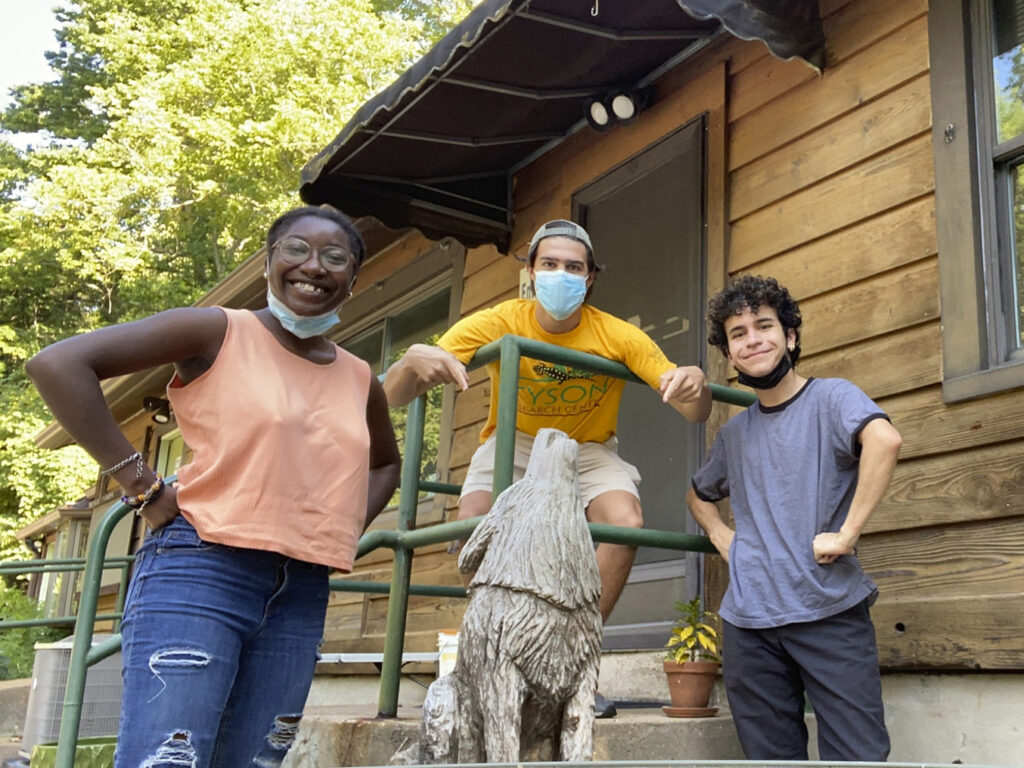
“I understand the value of communication, and being able to communicate with a lot of different people,” Sheppard says. “And as a research institution, WashU taking the time to notice that is a really big deal. It can be tough for scientists to talk about their research with the average person, but that doesn’t mean there’s not a need for the public to understand what scientists are doing. So recognizing that gap, and filling that missing piece, drew me to the curriculum.”
Science disciplines remain essential to understanding the scope and ever-shifting effects of climate change, however, they no longer occupy the entirety of the change-making space. Fike says that while the students coming through the new major are still getting some of those science courses in, they also receive training as generalists who can explain environmental issues as they pertain to a wide range of subsets, and to an even wider audience.
“We don’t need more data to show that the planet is warming,” Fike says. “What we need are better ways to communicate the science to the public. And so, that’s the rationale for the heavy emphasis on communications and analysis within this major. We need students to go out into the world and change it. We also realized we need to change how we’re engaging with them, and how we’re teaching them.”
Sheppard, who now plans on taking the LSAT and entering law school, says the new major helped her hone in on her interests and apply her strengths toward it as she continues to consider a career in the climate action realm.
“Policy around the environment changes, and as it does, I want to be in a position to advocate for the laws that help our planet.”
— Jenise sheppard
“Whether that’s in a courtroom or policy writing, I’m hoping that all of the practical skills I’ve received in my undergraduate experience at WashU can be applied for greater good,” she adds.
Ready for action
This summer, the United Nations made headlines when it released a new report finding that while a warmer global future is all but certain, there is still time to mitigate climate change’s most severe impacts. The report concluded it will take a collaborative, concerted effort across sectors to decrease greenhouse gas emissions, and start to reverse the damage caused by them.
It’s the challenge WashU students are learning about, training for and ready to take on. With well-rounded and varied curricula concentrating on solutions across many different sectors, students and faculty are bringing new perspectives, creativity and hope to a problem that at times can seem insurmountable.
“I have to think everything’s fixable,” Martin says. “There’s a lot of room for our students, and lots of space for them to take on the issue.”
Fike agrees.
“We have some really darn smart students, and they are able to think about these problems in really exciting, fresh ways,” he says. “I am really optimistic that with the diverse training we are able to provide, in terms of being able to expose them to different disciplines and how they fit together, they will be well-positioned to launch and make a difference.”
WashU alum Westrate is one of those former students nearly ready to launch. She recently accepted a job with an non-government organization called Climate Advisers. She will work as an associate with their Forest and Strategic Litigation teams, based in Washington, DC.
“It’s such a multifaceted world, and this is such a multifaceted problem,” she says. “You don’t have to be stuck in something sort of small and straight-lined, you can do anything you want. And WashU is a university that helps prepare you to do that.”
